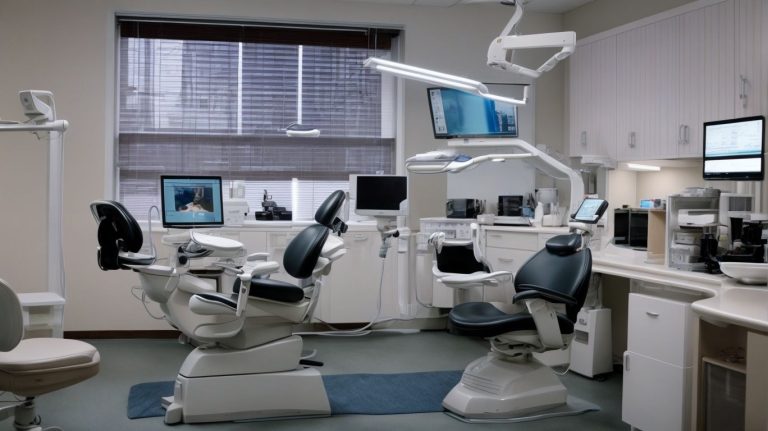Managing Bad Breath and Improving Oral Health: Dr. Cindy Li’s Tips
Managing bad breath and maintaining good oral health are essential aspects of overall well-being. As a dentist, I often encounter patients who are concerned about their breath and the health of their gums. Here are some key points to consider:
- Bad breath, or halitosis, can be caused by various factors, including poor oral hygiene, certain foods, and underlying health conditions.
- Maintaining fresh breath and healthy gums requires a combination of daily habits and professional care.
- Understanding the root causes of bad breath is crucial for effective management and prevention.
Understanding the Causes of Bad Breath
Bad breath can stem from several sources. One of the most common causes is poor oral hygiene, which allows food particles to remain in the mouth, leading to bacterial growth and unpleasant odors. Additionally, certain foods like garlic and onions can contribute to bad breath due to their strong odors and the way they are metabolized in the body. It’s also important to consider that dry mouth, a condition where saliva production decreases, can exacerbate bad breath since saliva helps cleanse the mouth and remove particles.
Beyond these everyday causes, bad breath can also be a sign of more serious health issues. Conditions such as gum disease, tooth decay, and even systemic illnesses like diabetes can manifest as halitosis. Understanding these potential underlying causes is crucial for addressing the issue effectively. If bad breath persists despite good oral hygiene practices, it’s essential to consult a dental professional to rule out any serious conditions.
Daily Habits for Fresh Breath and Healthy Gums
Incorporating good oral hygiene practices into your daily routine is the first step toward fresh breath and healthy gums. Brushing your teeth at least twice a day with fluoride toothpaste and flossing daily are fundamental habits. These practices help remove food particles and plaque, which are primary contributors to bad breath and gum disease. Additionally, using an antibacterial mouthwash can further reduce bacteria in the mouth and provide a fresh feeling.
Diet also plays a significant role in oral health. Drinking plenty of water helps maintain saliva flow, which is essential for washing away food particles and bacteria. Eating a balanced diet rich in fruits and vegetables can also promote healthy gums. Avoiding tobacco products and limiting alcohol consumption are crucial, as these can dry out the mouth and contribute to bad breath and gum disease.
Professional Treatments and Long-Term Solutions
For those struggling with persistent bad breath, professional dental treatments can offer effective solutions. Regular dental check-ups and cleanings are vital for maintaining oral health and catching any issues early. During these visits, we can remove tartar buildup and address any signs of gum disease, which are common culprits of bad breath. In some cases, we may recommend specialized treatments such as scaling and root planing to treat gum disease more aggressively.
Long-term solutions for managing bad breath often involve a combination of professional care and lifestyle changes. For instance, addressing any underlying medical conditions, such as diabetes or sinus infections, can significantly improve breath quality. Additionally, using products like tongue scrapers can help remove bacteria from the tongue’s surface, a common source of bad breath. By working closely with your dentist, you can develop a personalized plan to maintain fresh breath and optimal oral health.
What are the most common causes of bad breath? Poor oral hygiene, certain foods, dry mouth, gum disease, and underlying health conditions are common causes of bad breath.
How often should I brush and floss to prevent bad breath? It’s recommended to brush at least twice a day and floss daily to remove food particles and plaque that can cause bad breath.
Can diet affect my breath? Yes, certain foods like garlic and onions can cause bad breath. A balanced diet with plenty of water and fresh produce can help maintain fresh breath.
Is mouthwash effective in combating bad breath? Antibacterial mouthwash can help reduce bacteria in the mouth, providing temporary relief from bad breath.
When should I see a dentist about bad breath? If bad breath persists despite good oral hygiene, it’s important to consult a dentist to rule out any serious conditions.
Can gum disease cause bad breath? Yes, gum disease is a common cause of bad breath due to the bacteria involved in the infection.
What professional treatments are available for bad breath? Regular dental cleanings, scaling and root planing, and addressing underlying health issues are common professional treatments.
How does dry mouth contribute to bad breath? Dry mouth reduces saliva production, which is essential for cleansing the mouth and removing particles that cause bad breath.
For more information on managing bad breath and improving oral health, you can visit reliable resources such as the Canadian Dental Association at https://weence.com/ or the Ontario Dental Association at https://www.oda.ca. These sites offer valuable insights and guidelines on maintaining oral health.
If you have concerns about bad breath or want to improve your oral health, feel free to call us at 905-529-2164 to schedule an appointment. We’re here to help you achieve a healthy, confident smile.

